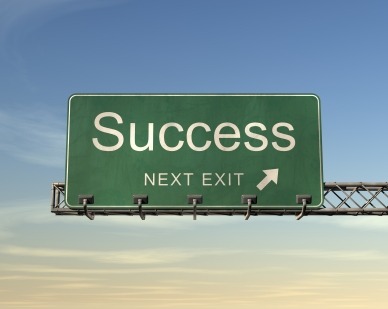
How Books Affect the Mind
A great book, with some great world views can change you.
Have you ever had an aha moment? The one where you found that no matter what you did the book you just read is still stuck in your mind? The moment where you know this book has done something powerful to your current line of thought, and might even be that paradigm shift you have been looking for?
I’ll be honest, I love reading, and I love how it can take me to places I wouldn’t go before. I love movies for that same reason. Books, however, have a funny means of helping you and showing you a different way of looking at life (and in the long term cost less than seeing a movie a couple times). I might like a teen book, and quickly glance through it, or a business book and get nothing out of it. I might find that old battered copy of a book I loved as a child or a teenager and re-read it, only to find something new and delightful because I’m that much older.
Your mind is a powerful tool. It’s a muscle we normally don’t think about, yet it’s one of the most mentioned things in our language (think: mind, body, and soul) we need it fully functional to survive and as a writer, it needs to be thinking in different ways. Sometimes all it takes is another book or an author who has a different point of view than what we have. Better still they take our vague plan, or goal and make it functional.
The same happens when you have something on your mind, you have a plan, an idea, but no matter where you go it’s just not quite right. It doesn’t resonate with you.
Books are a great thing, as much as there are countless blogs, online articles, and Youtube videos out there, a book does more than just give a visual means of learning, it gives more, it allows you to touch the book, to feel the print to create your own notes and thoughts. For me, a book is a means to harness more than one or two neurones in my brain and find a new path. A new way of thinking if you will.
I was reading between two books: a John Maxwell book and a Darren Hardy book, both are great Maxwell has Sometimes You Win and Sometimes You Fail Learn and the Compound Effect. Normally, I prefer to read one book at a time, and then mull it over for a while, maybe writing a few notes here and there, but this time I was bouncing between two business books. The result was a moment of understanding, I learned that it’s okay to fail, but for success you need to do small changes which help over time. For a while, those two concepts simply didn’t work together with me.
To me, it was always go big, or don’t do it. And then why go small if it’s going to take forever to do? In many ways it mirrored my writing and my writing style. I wanted it big or go home, and when I failed (and I would) I also didn’t learn from the mistakes I made. It takes time and effort to figure out what is working for you, and to look at the details of what you are doing.
Case in point: My writing.
- The goals were set, but I never figured out how to succeed the way I wanted or needed to succeed. The editing, the interior, the elements of a book, I had grand ideas for it. The blogs and the people coming to them also, grand ideas. The problem? They were too grand and I was too impatient.
- I planned to fail. I didn’t plan for small success I planned to go ahead and do what I could do and win. I didn’t look at what it would take to have success, to be blessed with the success I wanted. The speed and the quick advice didn’t help me, and it made my blogs and writing not as good.
- My team… well, wasn’t motivated. The simple truth was that I wasn’t motivated. I did the 1,500 or so a day, and then didn’t do much else, I had finished for the day, but I wasn’t leading my team or asking questions. My editor was worried to push limits, and co-bloggers didn’t get the push they needed. I didn’t motivate them, and I didn’t lead them.
- It was get it done, and make the numbers.
- I hated to have to edit. One person could quickly find mistakes even in a 100 word blog post (Now I recommend don’t do that) since that was the case, I couldn’t figure out why/who/how I wasn’t getting any of X.
- My goals jumped around. A lot. My writing suffered because of it.
The biggest take away here? I’m hopeful you can see it. If you can’t I’m not setting my goals correctly. If you can, then great I’ve communicated them. For me though the biggest take away was not planning and not learning how to motivate myself or others.
If I can’t commit to holding up my end of the world of writing, why should a team or my readers do it for me? We are all intelligent and we might need a shift in our minds. Reading the books the way I did this time, made a world of difference. I can see that setting small goals and going from there with a long term goal of smaller success is better than the huge victory. It’s all about the compound effect, and how you learn and grow from what you have once believed.
I’m not advocating change for change sake. I’m advocating for the willingness to use books to change how you view the world. Don’t take this as saying just read non-fiction, rather I’m seeing that a book will be the key to a change of mind, and if a writer is willing a change of heart.
Books are there to build and help us grow. They are there to show us different methods of becoming better. The mind is powerful, and with a powerful means to motivate yourself, small successes over time, will help your mind, and your spirit.
To Be a Better Blogger And Writer
You May Also Like

Leadership Edge
June 16, 2015
When You “Fail” in Writing: Is It Really A “Fail”
March 12, 2012